Table of Contents
Sports and Nutrition Part 7
Sports and Nutrition Part 7, In this part we would learn about minerals in Nutritive component of Diet.
Minerals Sports and Nutrition Part 7 |
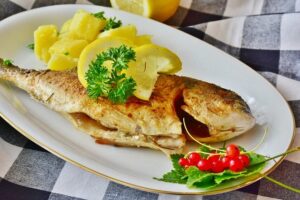 |
A) IodineSports and Nutrition Part 7 |
| 1. It Helps In The Production Of Hormones In The Thyroid Gland. |
| 2. It Is Also Significant For Proper Growth And Development Of The Body. |
| 3. Lack Of Iodine Can Cause Goitre (Swollen Thyroid Gland) And Mental Retardation. |
| 4. It Is Found In Iodised Salt, Fish And Sea Food. |
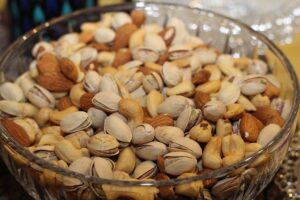 |
B) Iron |
| 1. It Is Essential In The Production Of Haemoglobin. |
| 2. Its Deficiency Causes Anaemia |
| Sources are Liver, Meat, Egg, Dry Fruits, Spinach, Banana, And Green Leafy Vegetables. |
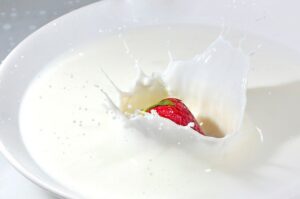 |
C) Calcium |
| 1. Growth And Development Of Our Bones And Teeth. |
| 2. Makes The Teeth And Bones Strong And Healthy. |
| 3. Helps In Blood Clotting. |
| 4. Deficiency May Cause Rickets. |
| 5. Sources Are Milk, Orange Juice, Eggs, Yogurt, Green Leafy Vegetables And Cereals. |
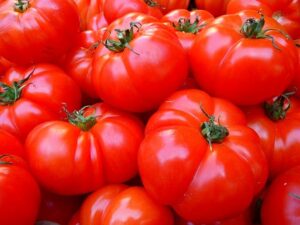 |
D) Potassium |
| 1. Helpful In Keeping The Nervous System And Muscular System Fit And Active All The Time. |
| 2. Helps In Maintaining The Amount Of Water In Blood And Tissues. |
| 3. Sources Are Peanuts, Citrus Fruits, Beans, Banana, Tomatoes. |
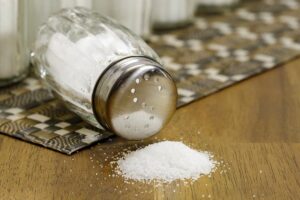 |
E) Sodium |
| 1. It Helps In Muscular Activities. |
| 2. It Also Helps In The Transmission Of Nerve Impulses. |
| 3. Its Main Sources Are Table Salt, Pickles, Butter. |
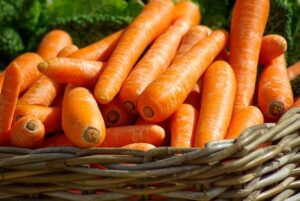
|
F) Sulphur |
| 1. helpful for the formation and functioning of cells of body. |
| 2. helpful in the formation of hair and nails. |
| Sources are egg, radish, pulses, carrot, peas, spinach, tomato, cabbage. |
Here we have VItamins in a Tabular form for easy understanding. Sports and Nutrition Part 7
Water Soluble Vitamins
| Nutrient
| Function | Sources |
| 1) Vitamin B1- Thiamine | It is needed for energy, metabolism, important to nerve function | pork, whole-grain or enriched breads and cereals, nuts and seeds |
| 2) Vitamin B2 – Riboflavin | It is needed for energy metabolism; important for normal vision and skin health | Milk and milk products, leafy green vegetables, whole-grain, enriched breads and cereals |
| 3) Vitamin B3 – Niacin | It is needed for energy metabolism; important for nervous system, digestive system, and skin health | Meat, fish, whole-grain or enriched breads and cereals, vegetables (especially mushrooms, asparagus, and leafy green vegetables), peanut butter |
| 4) Vitamin B5- Pantothenic acid | It is needed for energy metabolism | Widespread in foods |
| 5) Vitamin B7 – Biotin | It is needed for energy metabolism | Widespread in foods; also produced in intestinal tract by bacteria |
| 6) Vitamin B6 – Pyridoxine | It is needed for protein metabolism; helps make red blood cells | Meat, fish, poultry, vegetables, fruits |
| 7) Vitamin B9 – Folic acid | It is needed for making DNA and new cells, especially red blood cells | Leafy green vegetables and legumes, seeds, orange juice, and liver; now added to most refined grains |
| 8) Vitamin B12 – Cobalamin | It is needed for making new cells; important to nerve function | Meat, poultry, fish, seafood, eggs, milk and milk products; not found in plant foods |
| 9) Vitamin C- Ascorbic acid | It is needed for protein metabolism; important for immune system health; aids in iron absorption | Found only in fruits and vegetables, especially citrus fruits, vegetables in the cabbage family, cantaloupe, strawberries, peppers, tomatoes, potatoes, lettuce, papayas, mangoes, kiwifruit |
Fat Soluble Vitamins
| Nutrients | Function | Sources |
| 1) Vitamin A – Retinol | It is needed for vision, healthy skin immune system health. It’s daily reqirement is approx. 2mg | cod livr oil, egg yolk, milk and milk products, mango, papaya etc. |
| 2)Vitamin D – Cholecalciferol | It is needed for proper absorption of calcium; stored in bones | Butter, milk, fish liver oil. When exposed to sunlight the skin can make vitamin D. |
| 3) Vitamin E – Tocopherols | It protects cell walls | Green veg., liver, heart, coconut oil, milk, butter, maize etc. |
| 4) Vitamin K – Phylloquinone | It is needed for proper blood clotting | Tomato, potato, spinach, cabbage, soyabean, fish etc. |
To read further Part of this Chapter, Kindly Click below as per your requirements.

Thank you sir